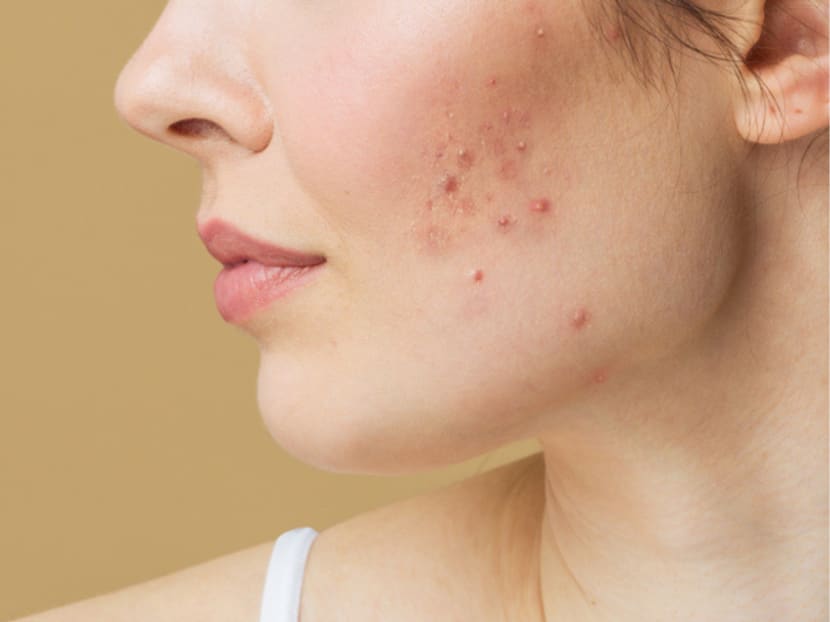The truth about acne anxiety: What causes it and how do you deal with it?
30 June, 2022

We often hear about how anxiety can cause acne, but what about the other way around? For some, having acne can be stressful because of the way it makes us feel about ourselves and how we think others perceive us. CNA Women spoke to clinical psychologists who share ways of coping with it.
“There is no single disease which causes more psychic trauma, more general insecurity and feelings of inferiority and greater sums of psychic suffering than does acne vulgaris.”
In 1948, two dermatologists – MB Sulzberger and SH Zaidems – wrote about the psychosocial effects of acne in their study. More than 70 years later, what they said continues to ring true.
Acne isn’t simply a medical skin condition, it has an effect on mental wellbeing as well. For some women, managing their acne is as simple as sticking on a pimple patch or applying concealer, and getting on with their day. But for others, it is a more exhausting experience, where they feel self-conscious and helpless at the pimples on their face, and may want to avoid going out.
What these women experience is acne anxiety.
WHAT IS ACNE ANXIETY?
A dermatologist at University of California San Francisco Health, Dr John Koo, investigated the negative psychosocial effects of acne in a 1995 study.
Through a series of interviews with patients, he concluded that acne can cause a decrease in self-esteem, a high preoccupation with the skin condition, as well as feelings of embarrassment that can lead to social withdrawal.
One participant, for example, described her pimple as something she felt was “three times as big as it really is”, and that everyone saw her acne before anything else about her appearance.
These psychosocial symptoms make up or contribute to acne anxiety, or that feeling of fear, concern and unease over the skin condition.
THE IMPACT OF ACNE
A meta-analysis in 2020, led by Professor Danielle Samuels from the University of Massachusetts, found that feeling anxious over acne is a reality for many, and that those who have acne tend to experience more anxiety than those who are acne-free.
Prof Samuels further found that acne-anxiety levels were significantly higher among adults compared to adolescents. While acne is considered a normal part of life when you're a teenager and even seen as a rite of passage, adult acne makes sufferers feel as if they have not gotten past their teenage years.
The adults feel “out of step with the acne-free adult peers and sociocultural beliefs that acne is a teenage problem”, said Prof Samuels.
One study revealed that females are not only more likely to develop acne than males, they are also disproportionately more mentally affected by acne, particularly if it developed at a later stage in their lives.
This gender difference is likely due to cultural forces that place different levels of importance in appearance for males and females, said psychology researcher SC Kellett - women tend to be more subjected to norms surrounding appearance whereas men tend to be more judged for their intellectual and career goals.
Source: cnalifestyle.channelnewsasia.com
TAG(s):
